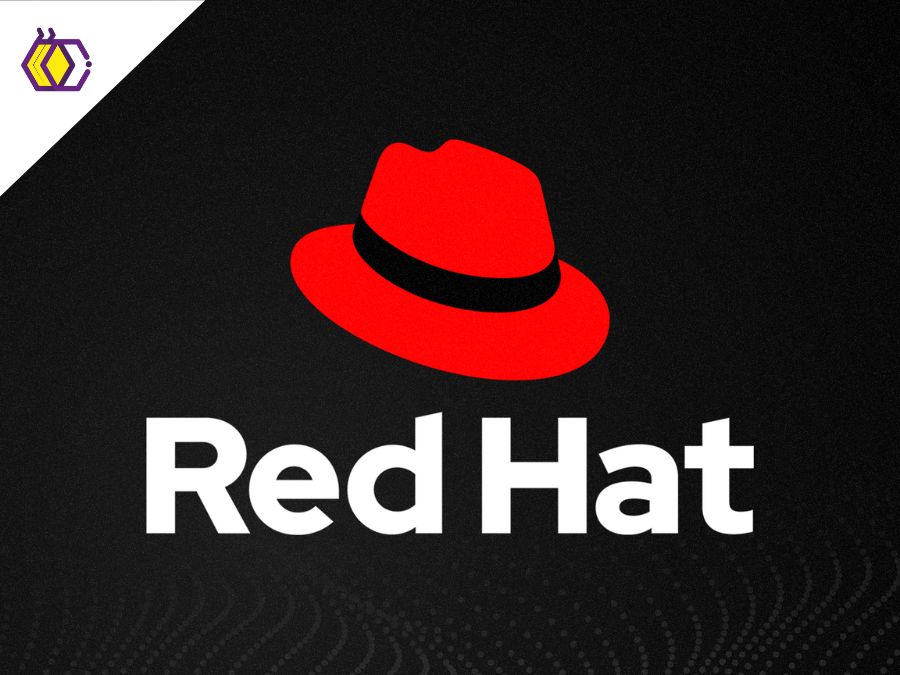

Red Hat
(8 minutes of reading) Red Hat is a technology company that offers Linux-based enterprise software solutions. Founded in 1993, the company is one of the global leaders in open-source solutions, with a focus on innovation, security, scalability, and reliability. The flagship product offered by Red Hat is Red Hat Enterprise Linux (RHEL), which is an open-source operating system designed for use in corporate environments. RHEL provides a secure and stable platform for applications, services, and IT infrastructure, with capabilities for system management, virtualization, storage, networking and more. In addition to RHEL, Red Hat offers a wide range of products and services, including middleware solutions, cloud application platforms, container management tools, IT automation solutions, consulting services and technical support, training, and certifications for IT professionals. The company is known for its commitment to the open source and free software community, contributing to the development of open-source projects around the world and working with partners and customers to create scalable and interoperable technology solutions. Red Hat has a broad customer base around the world, including companies in all industries, governments, and not-for-profit organizations. The company has a strong presence in the technology industry, being listed on the New York Stock Exchange (NYSE) and part of the S&P 500 index. In short, Red Hat is a leader in open-source enterprise software solutions with a focus on innovation, security, and reliability. Its products and services are widely used in companies and organizations around the world, and the company is recognized for its commitment to the free and open-source software community. OPEN-SOURCE: HOW RED HAT SUPPORTS AND CONTRIBUTES TO THE FREE SOFTWARE COMMUNITY Red Hat is a leader in open-source enterprise software solutions and, as such, has a strong commitment to the free and open-source software community. The company contributes to the free software community in many ways, from actively participating in open-source projects to donating resources and funding for important initiatives. One of the primary ways Red Hat contributes to the open-source community is through active participation in open-source projects. The company maintains its own Linux distribution, Red Hat Enterprise Linux (RHEL), which is based on the Fedora open-source project. Red Hat also contributes to upstream projects, providing fixes and security improvements to projects such as the Linux kernel, GCC, and many others. In addition, Red Hat is also a financial sponsor of many important open-source projects. The company contributes donations to non-profit organizations such as the Free Software Foundation, the Linux Foundation, the Apache Software Foundation, and many others. These organizations are responsible for managing and coordinating many of the world's most important open-source projects, and Red Hat donations help ensure these projects continue to thrive and evolve. Another way Red Hat supports the open-source community is through its open-source developer scholarship program. The program offers scholarships to developers who want to work on open-source projects full time, providing them with financial resources so they can focus on their development work. This helps ensure that the talent and experience of these developers is available to the open-source community. Red Hat also provides technical support and consulting services for many open-source projects. The company has a team of open-source experts who can help troubleshoot issues and provide guidance to open-source projects around the world. This helps ensure that open-source projects run smoothly and efficiently, allowing developers to focus on their code contribution. In summary, Red Hat is an outstanding example of how a company can support and contribute to the open-source community. Through active participation in open-source projects, financial donations to nonprofit organizations, scholarship programs, and technical support and consulting services, Red Hat helps ensure that the open-source community continues to thrive and evolve. RED HAT CERTIFICATIONS Red Hat certifications are a set of technical competency credentials that recognize professionals' expertise in open-source technologies, with a focus on enterprise solutions. Certifications are designed to help IT professionals demonstrate their skills and knowledge, validating their competencies in specific areas and providing employers with a way to identify the best candidates for their business needs. Red Hat certifications are widely recognized in the technology industry and are highly valued by companies looking for highly skilled IT professionals. They can help differentiate a professional in a competitive job market and can lead to higher pay and career opportunities. Red Hat offers several certifications in different areas, including Linux operating systems, application development, systems administration, virtualization, storage, and more. Some of the most popular certifications include: Red Hat Certified System Administrator (RHCSA): Certification that recognizes skills in Linux system administration, including managing users, groups, permissions, file systems, and more. Red Hat Certified Engineer (RHCE): Advanced certification that validates skills in enterprise Linux systems administration, including network management, security, virtualization, and more. Red Hat Certified Architect (RHCA): Highest-level certification that recognizes expertise in multiple technology domains such as virtualization, storage, application development, and systems administration. Red Hat certifications are obtained by passing rigorous, multiple-choice exams, where candidates are assessed on both practical and theoretical knowledge. Exams are taken at accredited test centers around the world. Professionals who earn a Red Hat certification can access a variety of resources and benefits, including expert technical support, access to exclusive certification communities, and access to exclusive certification events. Additionally, Red Hat certifications are valid for three years, after which professionals must recertify to keep their credentials current. THE FUTURE OF RED HAT Red Hat 's future looks bright as the company continues to lead the adoption of open-source technologies and provide innovative solutions for companies around the world. Acquisition of Red Hat in 2019 was a major milestone, bringing IBM's hybrid cloud expertise to complement Red Hat 's portfolio of open-source solutions. IBM has invested heavily in Red Hat and is committed to keeping the company independent, allowing it to continue to innovate and lead the open-source technology market. Additionally, Red Hat has been expanding into new areas of technology, such as artificial intelligence and machine learning, to help companies extract valuable insights from their data. The company is also investing in emerging technologies like Kubernetes and containers to help companies modernize their infrastructures and accelerate innovation. Another growth area for Red Hat is the hybrid cloud, which allows companies to leverage the benefits of public and private cloud, while maintaining control over their critical data and applications. Red Hat offers industry-leading hybrid cloud solutions like Red Hat OpenShift and Red Hat Ansible Automation Platform, which help enterprises manage their workloads in complex hybrid cloud environments. In addition, Red Hat continues to invest in its open-source communities, which are the foundation of its innovation. The company is an active leader in many important open source projects, including Linux, Kubernetes and OpenStack, and is working to develop the next generation of open source technologies. HOW TO START IN RED HAT If you're new to Red Hat, getting started can seem like a daunting task. But do not worry. After all, we are always thinking of you! If you're interested in getting started with Red Hat, here are some steps you can take: IDENTIFY YOUR NEEDS Before you start using Red Hat, it's important to understand your needs and the requirements of your projects. This will help determine which Red Hat product or solution is the best choice for you. DOWNLOAD AND INSTALL THE SOFTWARE Red Hat offers several download options depending on your needs. If you are looking for a Linux distribution for personal use or for learning, you can download Fedora, which is the community maintained free distribution. If you're looking for an enterprise solution, you can download Red Hat Enterprise Linux (RHEL) or another Red Hat product. LEARN THE BASICS Red Hat basics such as the Linux command line interface and file system structure. Red Hat offers several free online courses and documentation to help you get started. JOIN THE COMMUNITY Red Hat has a large community of open-source users and developers, and it's important to join that community for support and additional learning. You can participate in local discussion forums, conferences, and user groups. EXPLORE RED HAT SOLUTIONS Red Hat offers a wide range of enterprise solutions, such as Red Hat OpenShift for Containers and Red Hat Ansible Automation for IT automation. Explore these solutions to find the best option for your projects and needs. What did you think of our article? Be sure to follow us on social media and follow our blog to stay up to date!
Share this article on your social networks:
Rate this article:
[yasr_visitor_votes size=”medium”]



